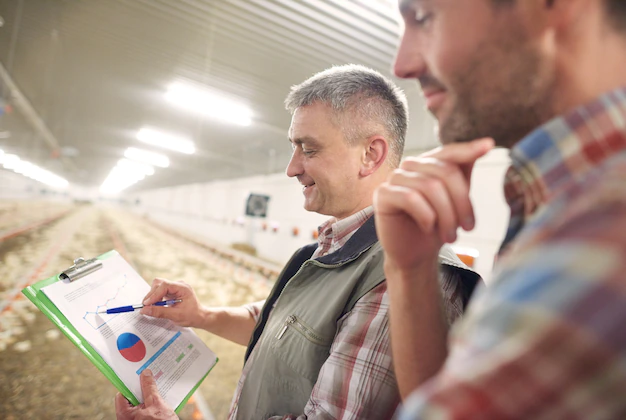Here are 10 things you should know about a Farm Financial Analyst job:
- Job Description: A Farm Financial Analyst is responsible for analyzing financial data and providing insights and recommendations to help farmers and agricultural businesses make informed financial decisions. They assess farm profitability, manage budgets, analyze investment opportunities, and provide financial projections.
- Financial Analysis: Farm Financial Analysts use financial models and tools to analyze farm operations, including income and expense statements, balance sheets, and cash flow statements. They evaluate key financial indicators such as profitability, liquidity, solvency, and efficiency.
- Agricultural Knowledge: To excel in this role, a Farm Financial Analyst needs a strong understanding of agricultural practices and the unique financial challenges faced by farmers. They must be familiar with crop yields, livestock production, agricultural markets, government subsidies, and other relevant factors.
- Risk Management: Farming involves inherent risks, including volatile commodity prices, weather events, and crop diseases. A Farm Financial Analyst helps farmers identify and mitigate these risks by developing risk management strategies, assessing insurance options, and analyzing the financial impact of potential risks.
- Business Planning: Farm Financial Analysts assist farmers in developing comprehensive business plans that align with their goals and financial capabilities. They provide guidance on diversifying income sources, expanding operations, acquiring new equipment or land, and optimizing resource allocation.
- Regulatory Compliance: Agriculture is subject to various regulatory frameworks and government programs. Farm Financial Analysts must stay updated on agricultural policies, tax regulations, and compliance requirements to ensure farmers are adhering to legal and financial obligations.
- Software Proficiency: Proficiency in financial software and technology tools is essential for Farm Financial Analysts. They use accounting software, spreadsheet applications, and specialized farm management software to organize financial data, perform analysis, and generate reports.
- Communication Skills: Effective communication is vital in this role as Farm Financial Analysts often collaborate with farmers, agricultural lenders, accountants, and other stakeholders. They must be able to explain complex financial concepts in a clear and concise manner and provide actionable recommendations.
- Professional Development: Staying updated on industry trends, financial best practices, and technological advancements is crucial for a Farm Financial Analyst. Attending conferences, workshops, and pursuing relevant certifications can enhance their skills and knowledge in the field.
- Ethical Conduct: Farm Financial Analysts handle sensitive financial information and must maintain the highest ethical standards. They should prioritize client confidentiality, avoid conflicts of interest, and adhere to professional codes of conduct established by organizations like the Financial Planning Association or similar bodies.
Remember that specific job requirements and responsibilities may vary depending on the organization, region, and the specific farm or agricultural sector being analyzed.
Join 'Farmers Mag' WhatsApp Channel
Get the latest Farming news and tips delivered straight to your WhatsApp
CLICK HERE TO JOIN






